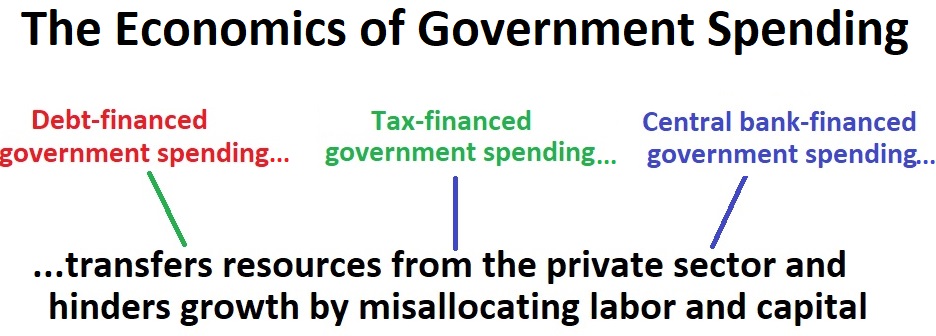The Swiss Debt Brake and Colorado’s TABOR work because they limit spending. Balanced budget requirements, by contrast, have a weak track record.
My point in the above discussion with the Soul of Enterprise is mostly based on economics.
Our fiscal challenge in the United States is excessive government spending. And the problem is projected to worsen in coming decades because of demographic change and poorly designed entitlement programs.
So it makes sense to directly address the problem with a spending cap.
By contrast, a balanced budget amendment is merely designed to inhibit debt-financed spending. That’s a good goal, but it won’t lead to good results if politicians react by simply increasing tax-financed spending. Or if they finance spending with bad monetary policy.

As I point out in the video, balanced budget requirements and anti-deficit rules have not produced good results in American states or EU nations.
The takeaway is that good policymakers should push for spending caps for theoretical reasons and practical reasons.
P.S. I was very pleasantly surprised when the German government recently endorsed EU-wide spending caps.
P.P.S. Remarkably, there are pro-spending-cap studies from left-leaning bureaucracies such as the International Monetary Fund (here and here) and the Organization for Economic Cooperation and Development (here and here). There are also similar studies from the European Central Bank (here and here).
P.P.P.S. It should go without saying, but I’ll say it anyhow, that a spending cap should be set at a level that actually results in less government.
———
Image credit: Bjoertvedt | CC BY-SA 3.

